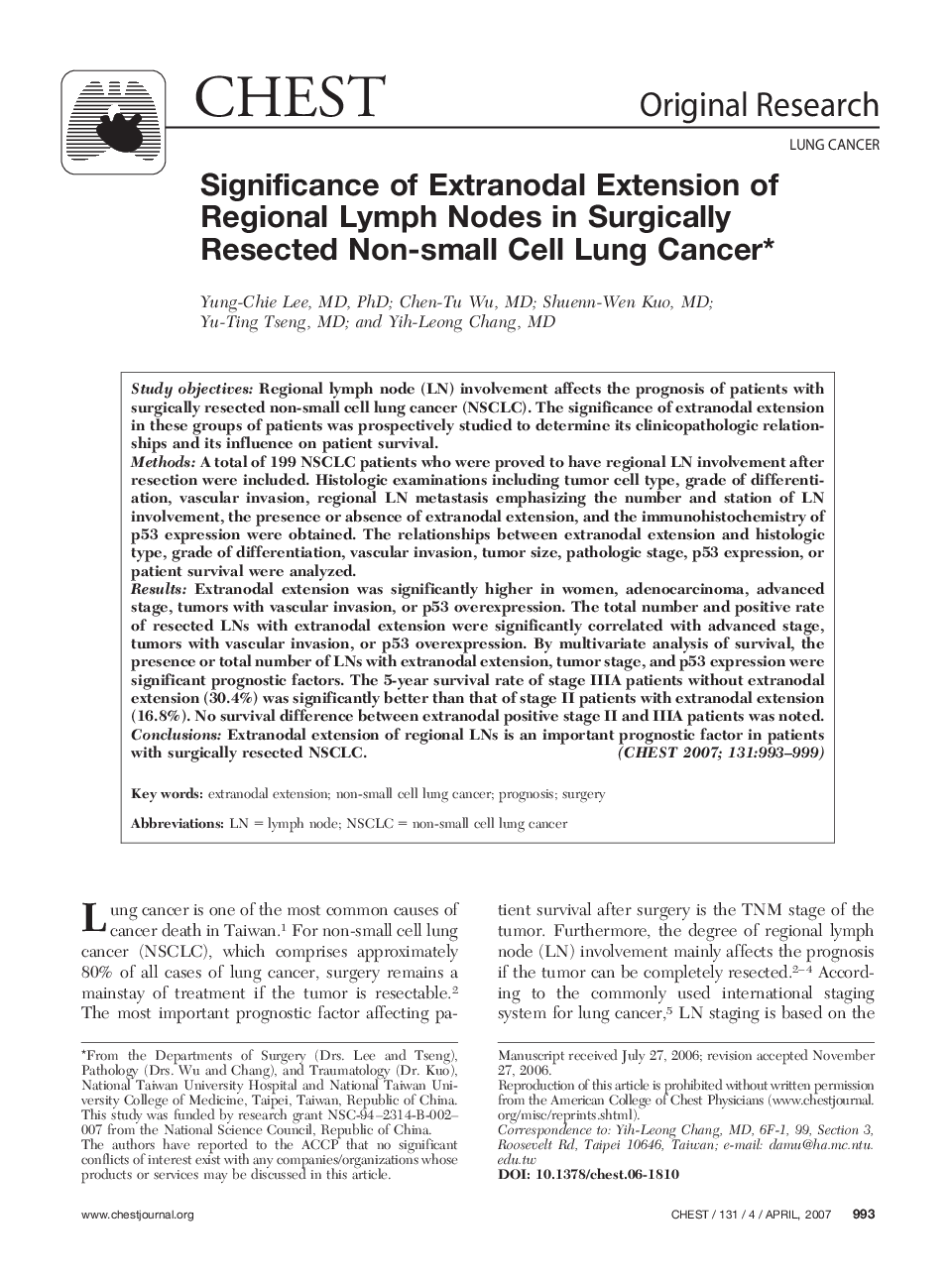| Article ID | Journal | Published Year | Pages | File Type |
|---|---|---|---|---|
| 2905034 | Chest | 2007 | 7 Pages |
Study objectivesRegional lymph node (LN) involvement affects the prognosis of patients with surgically resected non-small cell lung cancer (NSCLC). The significance of extranodal extension in these groups of patients was prospectively studied to determine its clinicopathologic relationships and its influence on patient survival.MethodsA total of 199 NSCLC patients who were proved to have regional LN involvement after resection were included. Histologic examinations including tumor cell type, grade of differentiation, vascular invasion, regional LN metastasis emphasizing the number and station of LN involvement, the presence or absence of extranodal extension, and the immunohistochemistry of p53 expression were obtained. The relationships between extranodal extension and histologic type, grade of differentiation, vascular invasion, tumor size, pathologic stage, p53 expression, or patient survival were analyzed.ResultsExtranodal extension was significantly higher in women, adenocarcinoma, advanced stage, tumors with vascular invasion, or p53 overexpression. The total number and positive rate of resected LNs with extranodal extension were significantly correlated with advanced stage, tumors with vascular invasion, or p53 overexpression. By multivariate analysis of survival, the presence or total number of LNs with extranodal extension, tumor stage, and p53 expression were significant prognostic factors. The 5-year survival rate of stage IIIA patients without extranodal extension (30.4%) was significantly better than that of stage II patients with extranodal extension (16.8%). No survival difference between extranodal positive stage II and IIIA patients was noted.ConclusionsExtranodal extension of regional LNs is an important prognostic factor in patients with surgically resected NSCLC.
